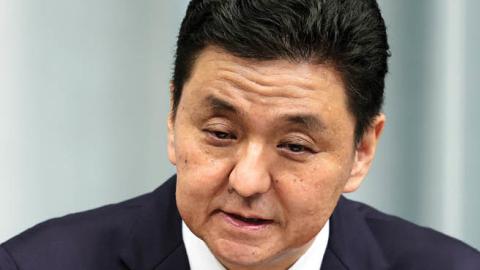Japan’s Jun Mizutani and Mima Ito shocked reigning champion China by winning the gold medal in mixed doubles table tennis Monday. But Tokyo’s increasingly aggressive pushback against Chinese pressure on Taiwan is causing more heartburn in Beijing than lost Olympic glory.
The headline moves are all about Taiwan. On July 9, an editorial in these pages noted Deputy Prime minister Taro Aso’s remarks that a Chinese invasion of Taiwan could threaten Japan’s “survival” and that Tokyo would join Washington to defend the island in such a case. The next week Japan’s annual defense report broke with longstanding practice to highlight the importance of Taiwan to Japan. State Minister Yasuhide Nakayama, the second-ranking Defense Ministry official, told an audience at my home think tank, Hudson Institute, that the world needs to “wake up” to the threat China poses to Taiwan. Defense Minister Nobuo Kishi put it more bluntly in an interview last month: “The peace and stability of Taiwan are directly connected to Japan.”
When Mr. Kishi speaks, China listens. Younger brother of former Prime Minister Shinzo Abe, grandson of former prime minister Nobusuke Kishi, and great nephew of a third ( Eisaku Sato ), the defense minister has a history of pushing the envelope on Japan-Taiwan relations. His close and continuing contacts with the Democratic Progressive Party, the more pro-independence of the two major Taiwanese political parties, makes him a lightning rod for criticism in Beijing. Mr. Kishi’s emergence as defense minister at the center of a new Japanese consensus on Taiwan policy underlines the depth of the shift under way.
Read in _Wall Street Journal_


















